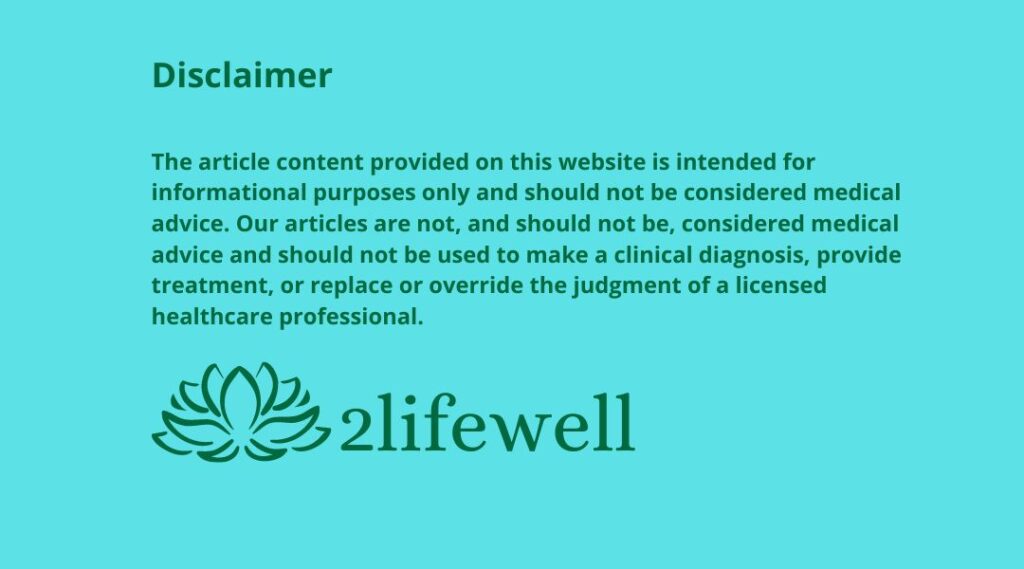
Embracing the Power of Positive Thinking
In a world filled with challenges and uncertainties, maintaining a positive mindset can be a transformative force in our lives. A positive mindset isn’t just about seeing the world through rose-colored glasses; it’s about cultivating a mental attitude that embraces optimism, resilience, and gratitude. By harnessing the power of positive thinking, we can overcome obstacles, achieve our goals, and experience greater fulfillment in our lives.
The Power of Positivity: Understanding the Impact of Mindset
Our mindset shapes the way we perceive and interact with the world around us. A positive mindset allows us to approach life with optimism and resilience, while a negative mindset can hinder our ability to overcome challenges and thrive. Understanding the impact of mindset empowers us to cultivate positivity in our thoughts, words, and actions, leading to greater overall well-being.
Tip: Start each day with a positive affirmation or mantra to set the tone for a day filled with optimism and possibility. Repeat phrases such as “I am capable,” “I am deserving of happiness,” or “I attract positivity into my life” to reinforce positive beliefs and intentions.
Cultivating a Positive Mindset: Strategies for Shifting Perspectives
Cultivating a positive mindset requires conscious effort and practice. By adopting strategies for shifting perspectives, such as reframing negative thoughts, practicing gratitude, and focusing on solutions rather than problems, we can train our minds to see the good in every situation. These strategies empower us to approach life with a mindset of abundance and possibility, fostering resilience and emotional well-being.
Tip: Keep a gratitude journal and take time each day to reflect on the things you’re thankful for. By cultivating an attitude of gratitude, you can train your brain to focus on the positive aspects of your life, even during challenging times.
The Science of Positive Thinking: How Thoughts Shape Reality

Research in psychology and neuroscience has shown that our thoughts have a profound impact on our emotions, behaviors, and overall well-being. Positive thinking is not just wishful thinking; it’s a powerful tool that can reshape our brains and influence our experiences. By understanding the science behind positive thinking, we can harness its transformative potential to create a more fulfilling life.
Tip: Practice cognitive restructuring by challenging negative thoughts and replacing them with more realistic and optimistic alternatives. This technique can help break the cycle of negative thinking and promote a more positive outlook on life.
Overcoming Negative Bias: Challenging Limiting Beliefs
Negative bias is a natural tendency of the human mind to focus on threats and negative experiences. However, this bias can lead us to overlook positive aspects of our lives and limit our potential for growth and fulfillment. By actively challenging limiting beliefs and reframing negative experiences, we can break free from the grip of negativity and cultivate a more balanced and empowering perspective.
Tip: Use positive affirmations to counteract negative self-talk and reinforce positive beliefs about yourself and your abilities. Repeat affirmations such as “I am worthy,” “I am capable,” and “I am deserving of happiness” to instill confidence and self-esteem.
Practicing Gratitude: Fostering Appreciation for Life’s Blessings
Gratitude is a powerful practice that can shift our focus from what we lack to what we have. By cultivating an attitude of gratitude, we can train our minds to recognize and appreciate the abundance that surrounds us. Regularly expressing gratitude for the people, experiences, and opportunities in our lives can enhance our sense of well-being and bring greater joy and fulfillment.
Tip: Start a daily gratitude practice by keeping a gratitude journal or simply taking a few moments each day to reflect on the things you’re thankful for. By focusing on the positives, you can cultivate a mindset of abundance and appreciation.
Harnessing the Law of Attraction: Manifesting Goals and Dreams
The law of attraction states that like attracts like, and that our thoughts and beliefs have the power to shape our reality. By maintaining a positive mindset and focusing on our goals and desires, we can attract positive outcomes into our lives. Visualization, affirmations, and positive thinking techniques can help align our thoughts and beliefs with our deepest desires, allowing us to manifest our dreams and create the life we desire.
Tip: Create a vision board to visually represent your goals and dreams. Include images, affirmations, and quotes that inspire and motivate you. By regularly visualizing your desires, you can activate the law of attraction and bring your goals to fruition.
Building Resilience Through Optimism: Bouncing Back from Adversity
Optimism is a key component of resilience – the ability to bounce back from setbacks and challenges. By maintaining an optimistic outlook, we can build resilience and navigate life’s ups and downs with greater ease. Optimistic individuals tend to see setbacks as temporary and specific, rather than permanent and pervasive, allowing them to bounce back more quickly and effectively from adversity.
Tip: Practice reframing challenges as opportunities for growth and learning. Instead of viewing setbacks as failures, see them as valuable lessons that can strengthen your resilience and character.
Mindfulness and Positivity: Cultivating Presence and Acceptance
Mindfulness is the practice of being fully present and engaged in the present moment, without judgment or attachment. By cultivating mindfulness, we can learn to observe our thoughts and emotions without getting caught up in them, allowing us to respond to life’s challenges with greater clarity and equanimity. Mindfulness fosters a sense of acceptance and compassion towards ourselves and others, promoting greater peace and well-being.
Tip: Incorporate mindfulness practices into your daily routine, such as meditation, deep breathing exercises, or mindful walking. These practices can help calm the mind, reduce stress, and cultivate a greater sense of presence and acceptance.
The Role of Self-Compassion in Positive Psychology
Self-compassion is the practice of treating ourselves with kindness, understanding, and acceptance, especially in times of difficulty or failure. Research has shown that self-compassion is closely linked to well-being and resilience, allowing us to bounce back from setbacks with greater ease. By cultivating self-compassion, we can develop a more positive relationship with ourselves and enhance our overall mental and emotional well-being.
Tip: Practice self-compassion by treating yourself with the same kindness and understanding that you would offer to a friend in need. Acknowledge your own humanity and imperfections, and offer yourself words of encouragement and support.
Embracing Growth Mindset: Viewing Challenges as Opportunities
A growth mindset is the belief that our abilities and intelligence can be developed through effort and perseverance. Individuals with a growth mindset are more likely to embrace challenges, persist in the face of obstacles, and view failure as a natural part of the learning process. By adopting a growth mindset, we can cultivate resilience, expand our potential, and achieve greater levels of fulfillment and success.
Tip: Cultivate a growth mindset by reframing challenges as opportunities for growth and learning. Focus on the process rather than the outcome, and celebrate your efforts and progress along the way.
Positive Relationships on Well-being
Positive relationships play a crucial role in promoting mental and emotional well-being. Connecting with others in meaningful and supportive ways can boost our mood, reduce stress, and increase feelings of happiness and fulfillment. Cultivating positive relationships requires communication, empathy, and mutual respect, and investing in our connections with others can lead to greater overall satisfaction and well-being.
Tip: Prioritize quality time with loved ones and nurture your relationships through open communication, active listening, and acts of kindness and appreciation. Remember that strong relationships are built on trust, mutual support, and genuine care for one another.
Finding Purpose and Meaning in Life
Having a sense of purpose and meaning in life is essential for mental and emotional well-being. When we have a clear sense of direction and values, we feel more motivated, fulfilled, and resilient in the face of challenges. Finding purpose often involves identifying our unique strengths, passions, and values, and aligning our actions with what truly matters to us.
Tip: Reflect on what brings you joy, fulfillment, and a sense of meaning in life. Consider your values, interests, and strengths, and explore how you can align your daily activities with your sense of purpose. Engage in activities that bring you fulfillment and contribute to a greater good, whether it.
Cultivating Resilience Through Self-Care Practices
Self-care is essential for building resilience and maintaining well-being, especially during challenging times. Engaging in regular self-care practices helps us recharge physically, mentally, and emotionally, allowing us to better cope with stress and adversity. Self-care can take many forms, including exercise, relaxation techniques, hobbies, and spending time with loved ones.
Tip: Prioritize self-care as an essential part of your routine. Schedule regular self-care activities that nourish your body, mind, and soul, and don’t hesitate to ask for support when needed. Remember that taking care of yourself is not selfish – it’s an important investment in your overall well-being.
Cultivating Gratitude Through Daily Practices
Practicing gratitude is a powerful way to cultivate a positive mindset and enhance overall well-being. By focusing on the things we’re grateful for, we shift our attention away from negativity and scarcity, and towards abundance and appreciation. Gratitude practices can include keeping a gratitude journal, expressing thanks to others, and savoring the present moment.
Tip: Start or end each day by reflecting on three things you’re grateful for. Keep a gratitude journal and write down the things that bring you joy and appreciation. Cultivate an attitude of gratitude by noticing the small blessings in your life and expressing thanks regularly.
Setting Boundaries for Mental Well-being
Setting healthy boundaries is essential for protecting our mental and emotional well-being. Boundaries define the limits of acceptable behavior and help us maintain a sense of autonomy and self-respect. By establishing clear boundaries in our relationships, work, and personal life, we can reduce stress, prevent burnout, and cultivate healthier dynamics with others.
Tip: Identify your personal boundaries and communicate them assertively to others. Practice saying no when necessary and prioritize your own needs and well-being. Remember that setting boundaries is not selfish – it’s an act of self-care and self-respect.
Building Resilience Through Mindfulness Practices
Mindfulness practices, such as meditation, deep breathing, and body scans, are powerful tools for building resilience and enhancing well-being. By cultivating present-moment awareness and non-judgmental acceptance, mindfulness helps us navigate life’s challenges with greater ease and equanimity. Regular mindfulness practice can reduce stress, improve concentration, and promote emotional balance.
Tip: Incorporate mindfulness into your daily routine by dedicating a few minutes each day to mindfulness meditation or simple mindfulness exercises. Practice bringing mindful awareness to everyday activities, such as eating, walking, or washing dishes. Cultivate a beginner’s mind and approach each moment with curiosity and openness.
The Power of Self-Reflection for Personal Growth
Self-reflection is a valuable practice for personal growth and development. By taking the time to reflect on our thoughts, feelings, and experiences, we gain insight into ourselves and our lives, allowing us to make more informed choices and pursue our goals with greater clarity and purpose. Self-reflection can take many forms, including journaling, meditation, and engaging in meaningful conversations with others.
Tip: Set aside regular time for self-reflection, whether it’s a few minutes each day or a longer period once a week. Use prompts or questions to guide your reflection, such as “What am I grateful for?” or “What did I learn from today’s challenges?” Embrace self-reflection as an opportunity for growth and self-discovery.
Cultivating a Growth Mindset for Success
A growth mindset is the belief that our abilities and intelligence can be developed through effort and perseverance. Cultivating a growth mindset can help us overcome obstacles, embrace challenges, and achieve greater success in life. By adopting a growth mindset, we focus on learning and growth rather than fixed outcomes, allowing us to bounce back from setbacks and thrive in the face of adversity.
Tip: Cultivate a growth mindset by reframing challenges as opportunities for learning and growth. Embrace the process of mastery and focus on continuous improvement rather than perfection. Celebrate your efforts and progress along the way, and remember that setbacks are temporary setbacks, not reflections of your abilities or worth.
Nurturing Self-Compassion for Well-being
Self-compassion involves treating ourselves with kindness, understanding, and acceptance, especially during times of difficulty or failure. Research has shown that self-compassion is closely linked to well-being, resilience, and mental health. By practicing self-compassion, we can cultivate a more positive relationship with ourselves and experience greater overall fulfillment and happiness.
Tip: Practice self-compassion by offering yourself the same kindness and support that you would offer to a friend in need. Be mindful of your self-talk and replace self-criticism with words of encouragement and understanding. Remember that you are worthy of love and compassion, just as you are.
Embracing Vulnerability and Authenticity
Embracing vulnerability and authenticity is essential for living a fulfilling and meaningful life. When we allow ourselves to be vulnerable and authentic, we open ourselves up to deeper connections with others, greater creativity, and a sense of purpose and fulfillment. By embracing our true selves and sharing our authentic selves with the world, we can cultivate richer, more meaningful lives.
Tip: Embrace vulnerability as a strength rather than a weakness. Allow yourself to be open and authentic in your interactions with others, and don’t be afraid to show your true self. Practice self-compassion and self-acceptance, and remember that vulnerability is the birthplace of connection and belonging.
Books:
- “Mindset: The New Psychology of Success” – Carol S. Dweck – https://amzn.to/3MDgImH
- Dweck explores the difference between a fixed mindset and a growth mindset, showing how a positive mindset can lead to success and personal fulfillment.
- “The Power of Now: A Guide to Spiritual Enlightenment” – Eckhart Tolle – https://amzn.to/3MH0oBc
- Tolle offers spiritual teachings to cultivate a positive mindset, highlighting the importance of living in the present moment to achieve inner fulfillment.
- “The Happiness Advantage: How a Positive Brain Fuels Success in Work and Life” – Shawn Achor – https://amzn.to/4dSaECG
- Achor presents research on the benefits of a positive mindset, showing how cultivating optimism can lead to success and fulfillment in all areas of life.
- “You Are a Badass: How to Stop Doubting Your Greatness and Start Living an Awesome Life” – Jen Sincero – https://amzn.to/47o20tp
- Sincero offers insights and practical exercises to develop a positive mindset and overcome limiting beliefs, thus promoting fulfillment and personal fulfillment.
- “The Four Agreements: A Practical Guide to Personal Freedom” – Don Miguel Ruiz – https://amzn.to/3ZnG7Z1
- Ruiz presents four principles for cultivating a positive mindset and achieving personal freedom, promoting fulfillment through inner transformation.
Scientific articles:
- “Positive Thinking: The Science of Happiness and Well-Being” – Lyubomirsky et al. (2005)
- This article reviews the literature on the benefits of positive thinking for happiness and well-being, showing how a positive mindset can promote fulfillment.
- “Optimism and Its Impact on Mental and Physical Well-Being” – Carver et al. (2010)
- Review examining the role of optimism in promoting mental and physical well-being, highlighting its importance in achieving fulfillment and satisfaction in life.
- “Positive Psychology Progress: Empirical Validation of Interventions” – Sin & Lyubomirsky (2009)
- This article reviews interventions based on positive psychology, showing how practices such as gratitude and positive thinking can promote fulfillment and emotional well-being.
- “Positive Emotion and Health: Going Beyond the Negative” – Pressman & Cohen (2005)
- This study reviews the literature on the benefits of positive emotions for health and well-being, showing how cultivating a positive mindset can promote fulfillment and vitality.
- “Positive Psychological Capital: Measurement and Relationship with Performance and Satisfaction” – Luthans et al. (2007)
- Research into the concept of positive psychological capital, showing how characteristics such as optimism and resilience can promote fulfillment and success in life.
Book Chapters:
- “The Oxford Handbook of Positive Psychology” – Chapter on Positive Thinking and Fulfillment by C. R. Snyder & Shane J. Lopez (2009) – https://amzn.to/47iXAnr
- Offers a comprehensive look at how positive thinking can promote fulfillment and emotional well-being, showing you how to cultivate a positive mindset.
- “The Handbook of Positive Emotions” – Chapter on the relationship between positive emotions and fulfillment by Barbara L. Fredrickson & Michael A. Mancuso (2013) – https://amzn.to/3zbDvTu
- Explores how positive emotions can promote fulfillment and satisfaction in life, offering insights into how to cultivate a positive mindset.

